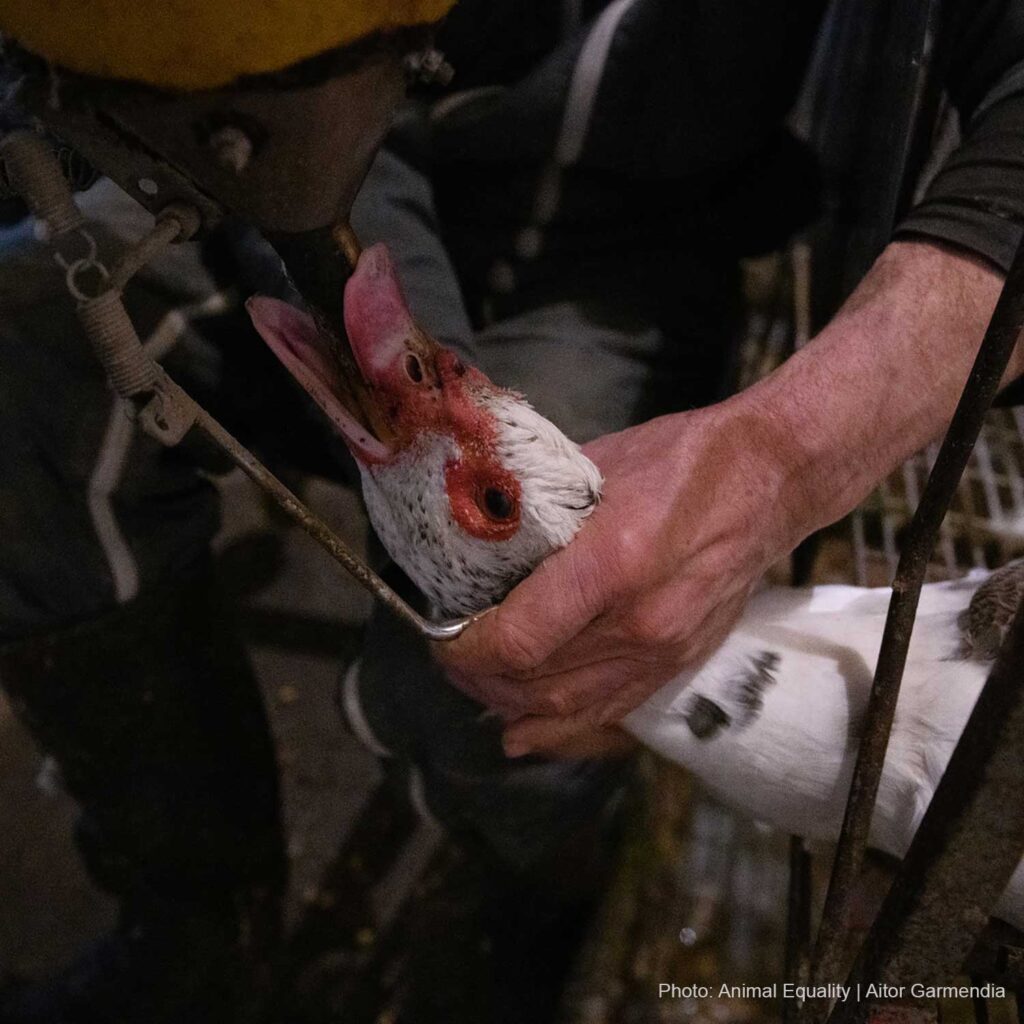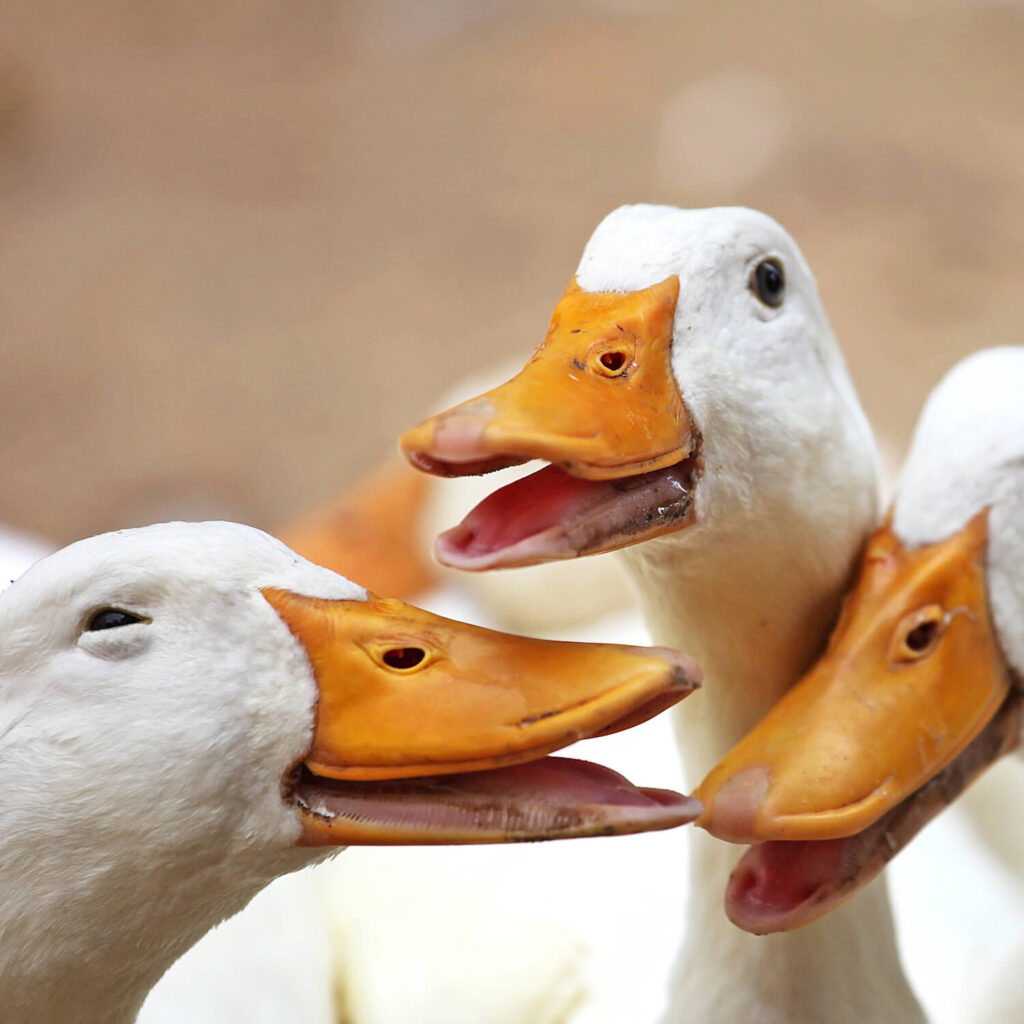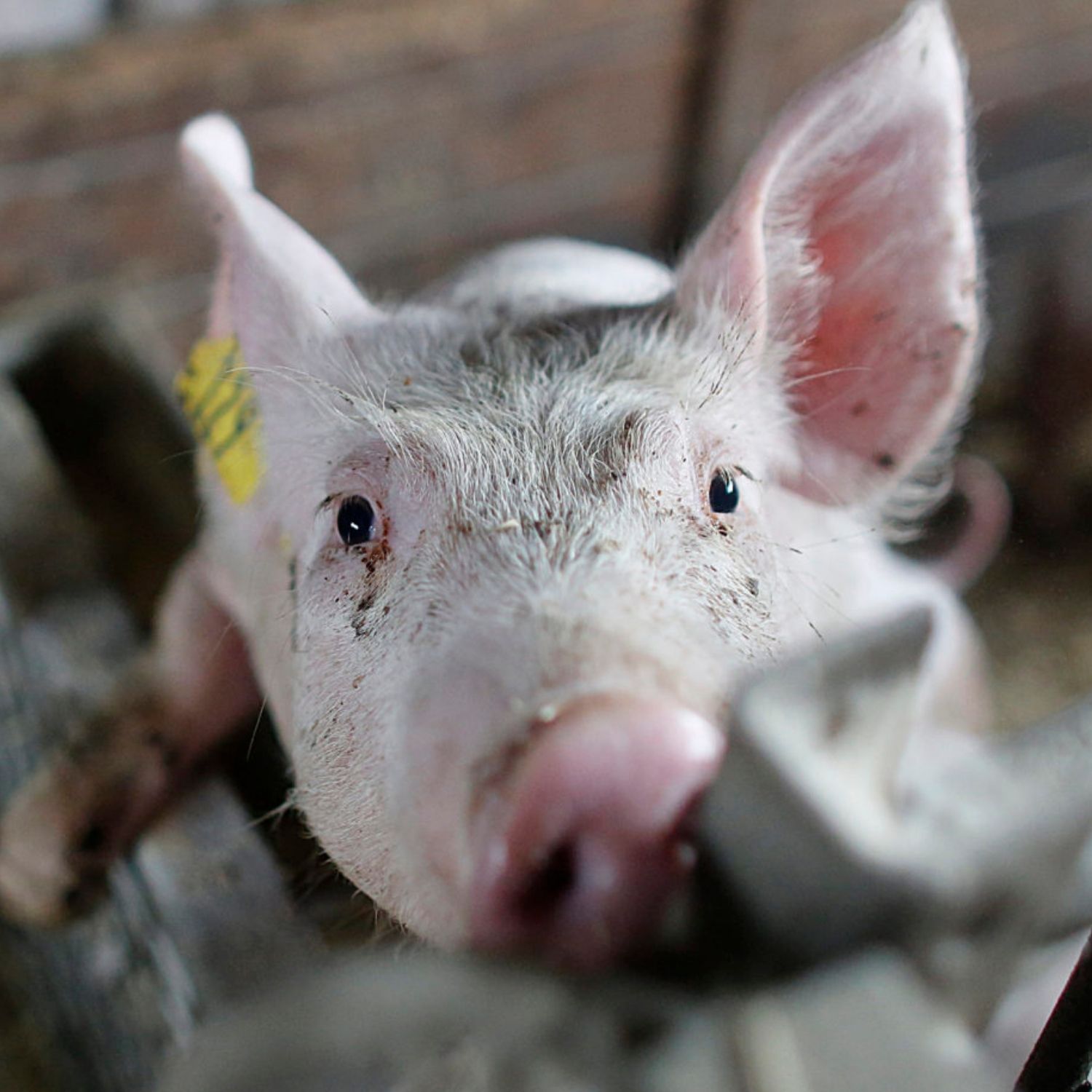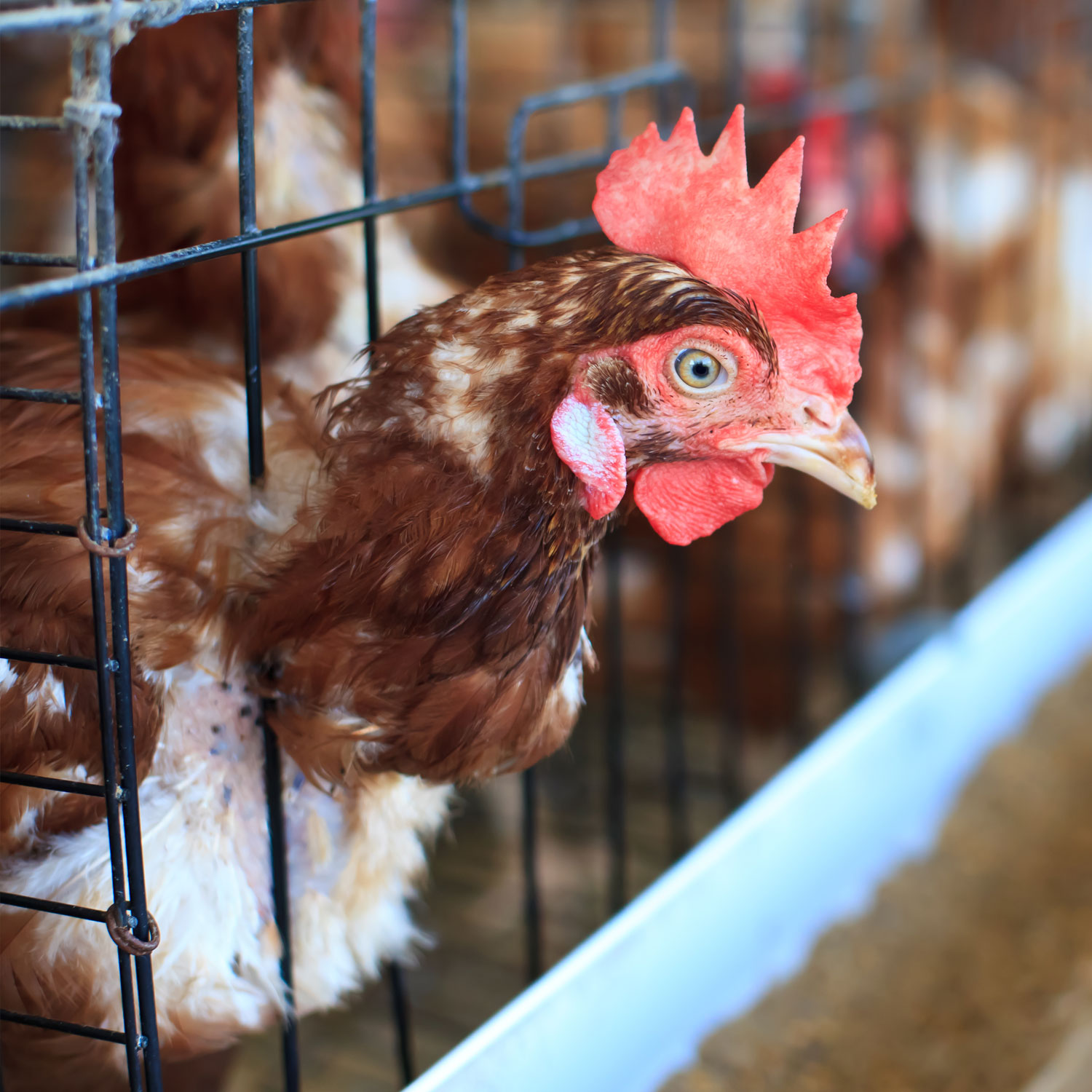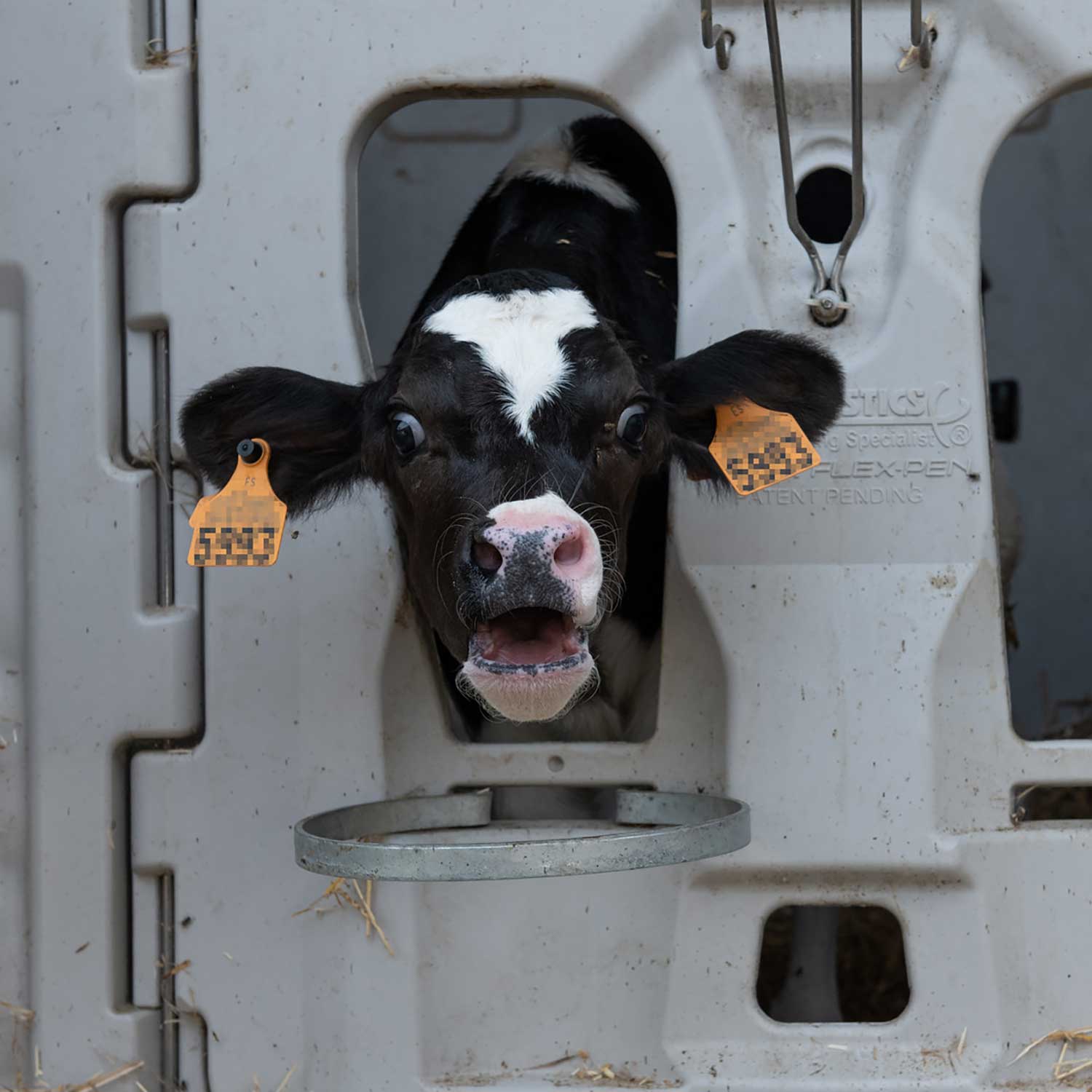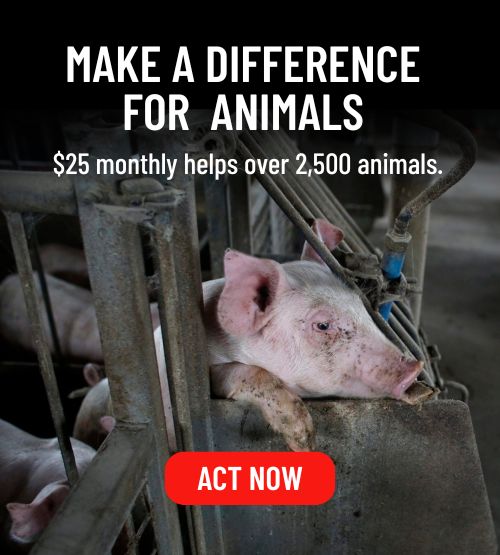UK celebrities, lawmakers demand an end to foie gras imports
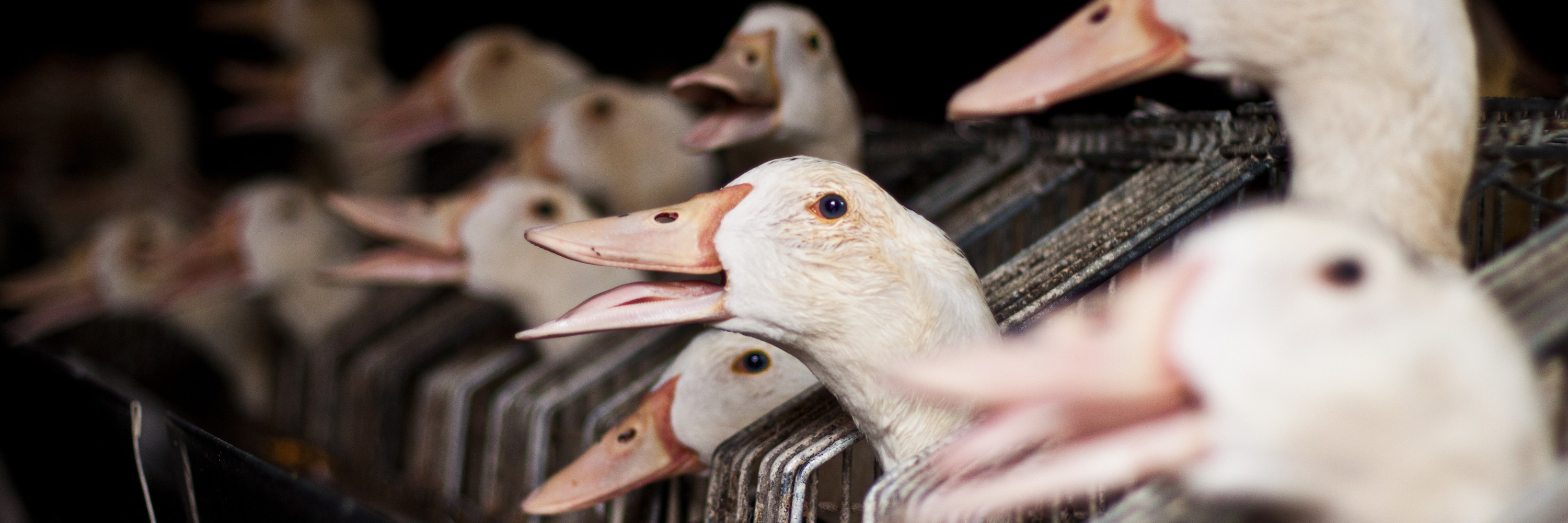
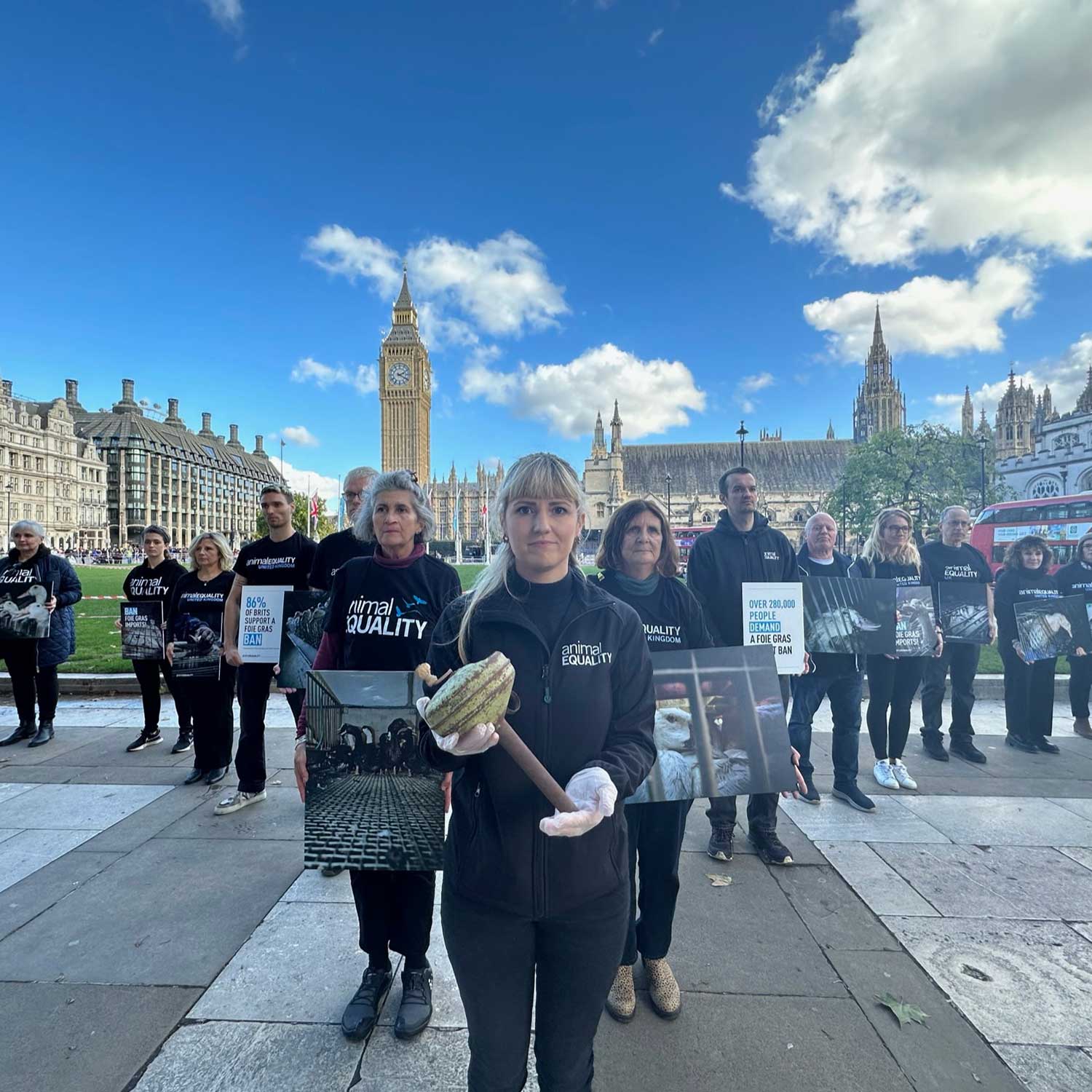
- Animal Equality in the UK continues its campaign to ban foie gras imports and other products made by force-feeding. The effort has been backed by prominent celebrities and lawmakers.
- Celebrities like Ricky Gervais, Evanna Lynch, and Peter Egan have joined the call, alongside cross-party UK lawmakers.
- Foie gras–made by force-feeding ducks and geese–is illegal to produce in the UK. However, it is still imported from mainland Europe.
- The Labour Party pledged to ban imports ahead of the 2024 elections, following an Animal Equality supporter action.
- However, the UK Government has been slow to act since coming into power.
- The UK’s 2020 exit from the European Union (Brexit) removes trade rules that previously could have made a foie gras import ban more difficult.
Update February 2025 – Before the 2024 elections, Labour MP Steve Reed promised to ban foie gras imports. Months later–now as a Government Minister–he has failed to act. Worse still, the Government is considering a trade deal with Europe that could ease imports instead.
Animal Equality met with Reed’s constituents to hear their thoughts on the matter. Volunteers also joined a demonstration at the Crystal Palace soccer stadium, a team he proudly supports.
Using a soccer ball covered in fake blood–approximately the size of a diseased bird liver–advocates called on him to “give foie gras the red card” and “kick cruelty out of the UK.” Environmentalist Dale Vince–founder of Britain’s first plant-based soccer club–joined the call.
Update November 2024 – Animal Equality hosted a UK Parliament event urging the Labour Party to ban foie gras imports. The event featured Michelin-starred chef Alexis Gauthier, a trade expert, and cross-party lawmakers.
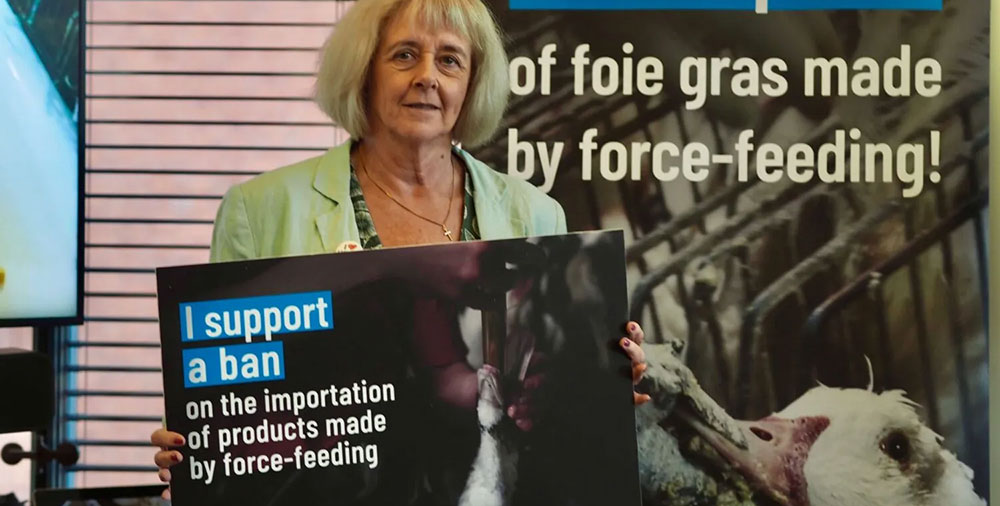
Update July 2024 – The UK Labour Party won a Parliament majority in the 2024 elections.
Update June 2024 – The Labour Party pledged to ban foie gras imports if it wins the 2024 election.
Update December 2023 – Musician Alesha Dixon, comedian Diane Morgan, actor Peter Egan, and actress Miriam Margolyes joined Animal Equality in calling on the Prime Minister to ban foie gras imports. Their open letter was exclusively reported by The Guardian.
Update October 2023 – Advocates protested foie gras imports near Big Ben, displaying a force-feeding tube. They also handed out plant-based faux gras using the recipe from Michelin-starred chef Alexis Gauthier. Using notes from Animal Equality, a lawmaker later urged Parliament to act. The debate, broadcast live, sparked a front-page news article in The Times and gained global attention.
A separate Times report revealed that the majority of Brits support banning foie gras imports, with nearly nine in ten in favour of a ban.
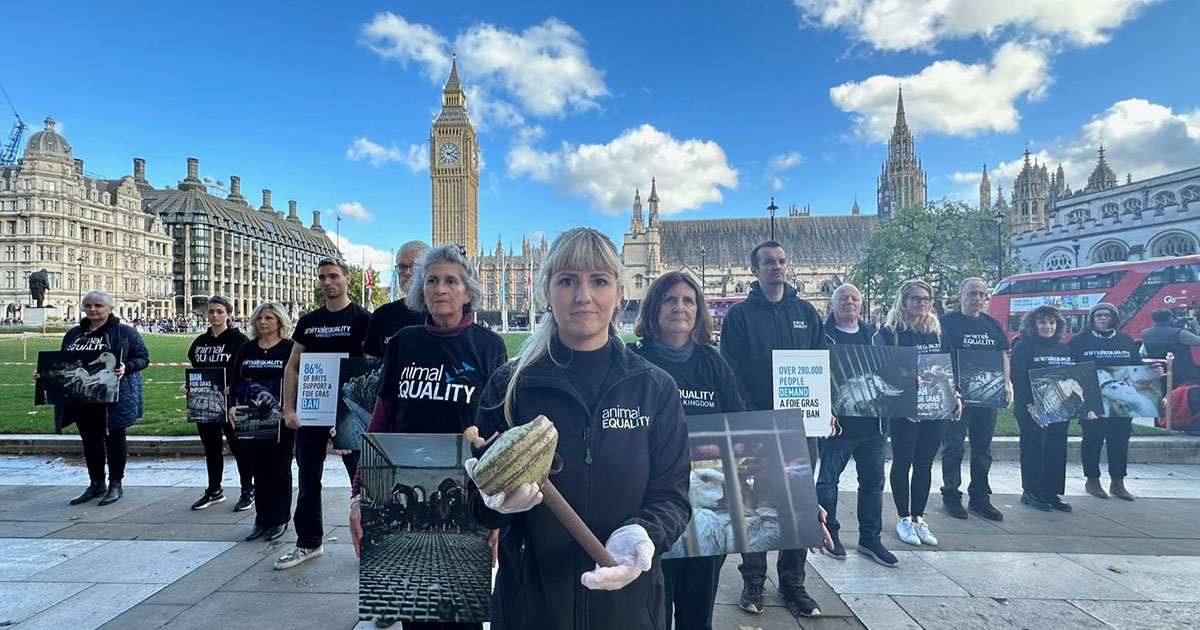
Update February 2023 – TV host Paul O’Grady, actress Miriam Margolyes (Harry Potter), model Dame Twiggy Lawson, actor Sir Mark Rylance (Bridge of Spies), and musician Alesha Dixon signed a letter urging the UK Prime Minister to ban foie gras imports. This came after the Environment Secretary dismissed it as a priority.
Meanwhile, Animal Equality’s UK Executive Director condemned the Government’s inaction on BBC 5 Live.
Update November 2022 – King Charles has banned foie gras from all royal residences, denouncing its as “torture in a tin.”
Update May 2022 – Celebrities and politicians condemned the UK Government for leaving a foie gras import ban out of the Queen’s Speech, which was delivered by Prince Charles.
Update March 2022 – Actor Peter Egan, comedian and director Ricky Gervais, TV doctor Amir Khan, and actress Dame Joanna Lumley co-signed a letter urging officials to end foie gras imports.
Update September 2021 – In a letter to UK officials, Animal Equality called for a ban on force-feeding for foie gras. One official gave a vague response, while another supported a ban “in the coming months.”
Meanwhile, actor Peter Egan and Animal Equality campaigners delivered petition signatures to the UK Government at 10 Downing Street. Michelin-starred chef Alexis Gauthier–who replaced foie gras with plant-based “faux gras” at his restaurants–joined the call.
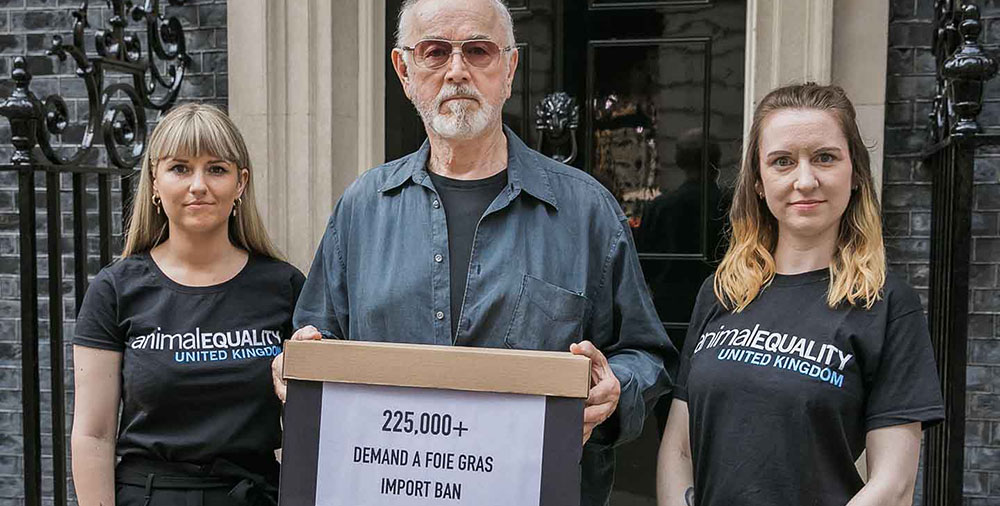
Update July 2021 – In an open letter coordinated by Animal Equality, UK lawmakers supported an immediate foie gras import ban.
Update April 2021 – UK representatives from multiple parties signed an open letter, organized by Animal Equality, urging officials to act on a foie gras import ban. The Animal Welfare Minister also acknowledged that foie gras production violates UK law.
Update July 2020 – Comedian Alan Carr joined Animal Equality’s campaign to ban foie gras imports.
Update December 2018 – Skylon–a UK restaurant in London’s Southbank Centre–removed foie gras from its menu following Animal Equality’s campaign.
Update November 2018 – Animal Equality visited a foie gras farm in France, where public tours allow visitors to see the production process. Actor Peter Egan and TV veterinarian Emma Milne joined the visit.
Later this month, actor Peter Egan joined campaigners outside Tate Modern, urging its restaurant to drop foie gras. Following the protest, the publicly funded museum removed it from the Christmas menu.
Update September 2018 – Actors Dev Patel (Slumdog Millionaire, Skins) and Westworld star Thandiwe Newton joined the call for a #FoieGrasFreeGB.
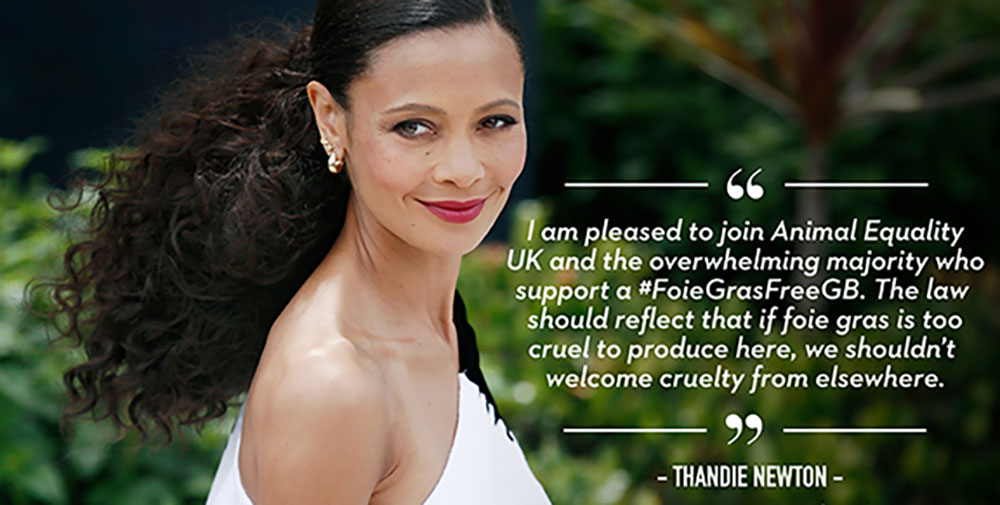
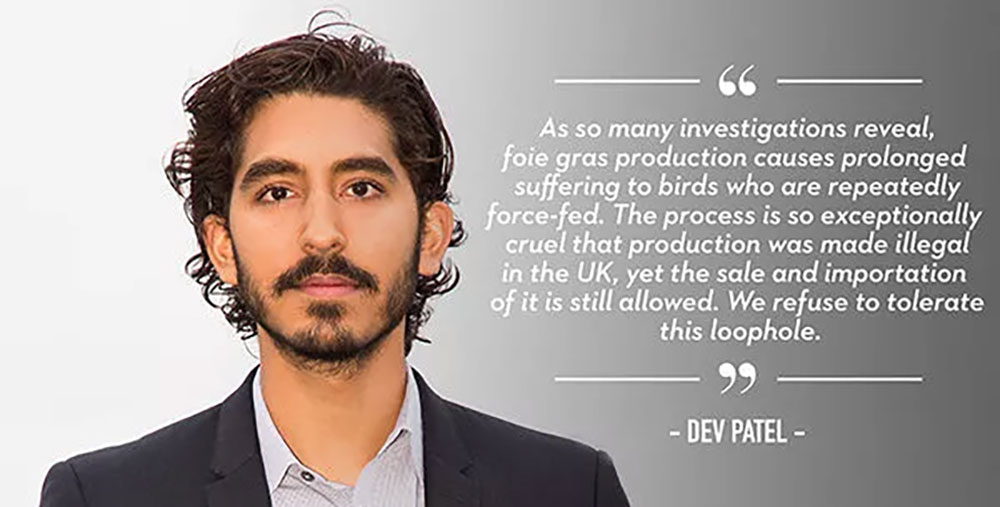
Days later, Peter Egan joined Animal Equality in delivering petition signatures to the Prime Minister, with coverage in The Huffington Post and El País.
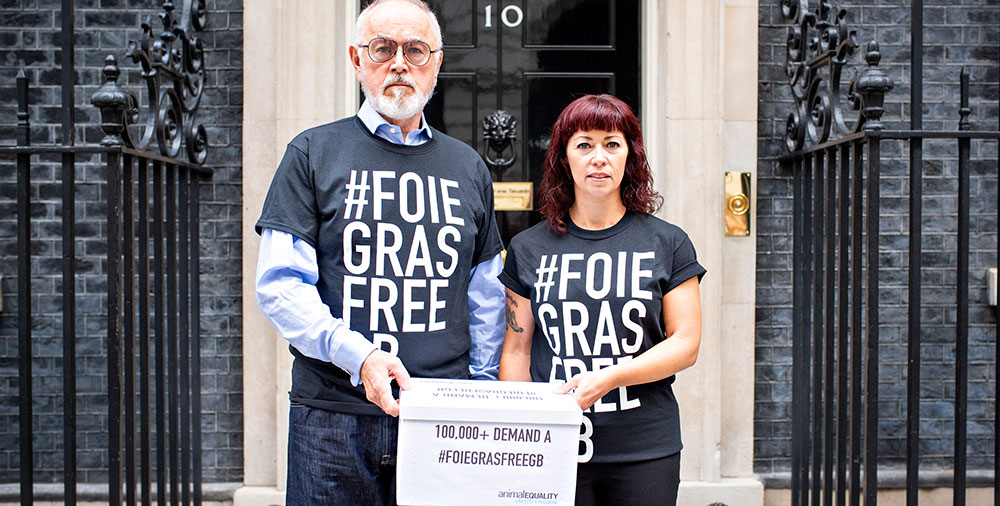
Update June 2018 – A UK minister confirmed banning foie gras imports wouldn’t violate trade rules, as its production is already illegal under UK law.
Meanwhile, during a parliamentary debate, lawmakers condemned the hypocrisy of allowing foie gras sales while banning its production.
Update May 2018 – Animal Equality hosted a UK Parliament event urging a foie gras import ban after Brexit. Experts exposed the cruelty of force-feeding, while lawmakers, journalists, and advocates–including actor Peter Egan–backed the call for a ban
Update March 2018 – British wildlife presenter Bill Oddie OBE–along with lawmakers and Animal Equality campaigners–delivered petition signatures calling for a foie gras import ban. Environmentalist and TV host Chris Packham also supported the campaign.
Update February 2018 – The Labour Party pledged to ban foie gras imports in its Animal Welfare Plan. Days later, the UK’s Environment Secretary said he would consider a ban after Brexit.
Animal Equality’s campaign gained celebrity support, with Evanna Lynch calling foie gras a “brutally cruel practice that needs to be stopped!”
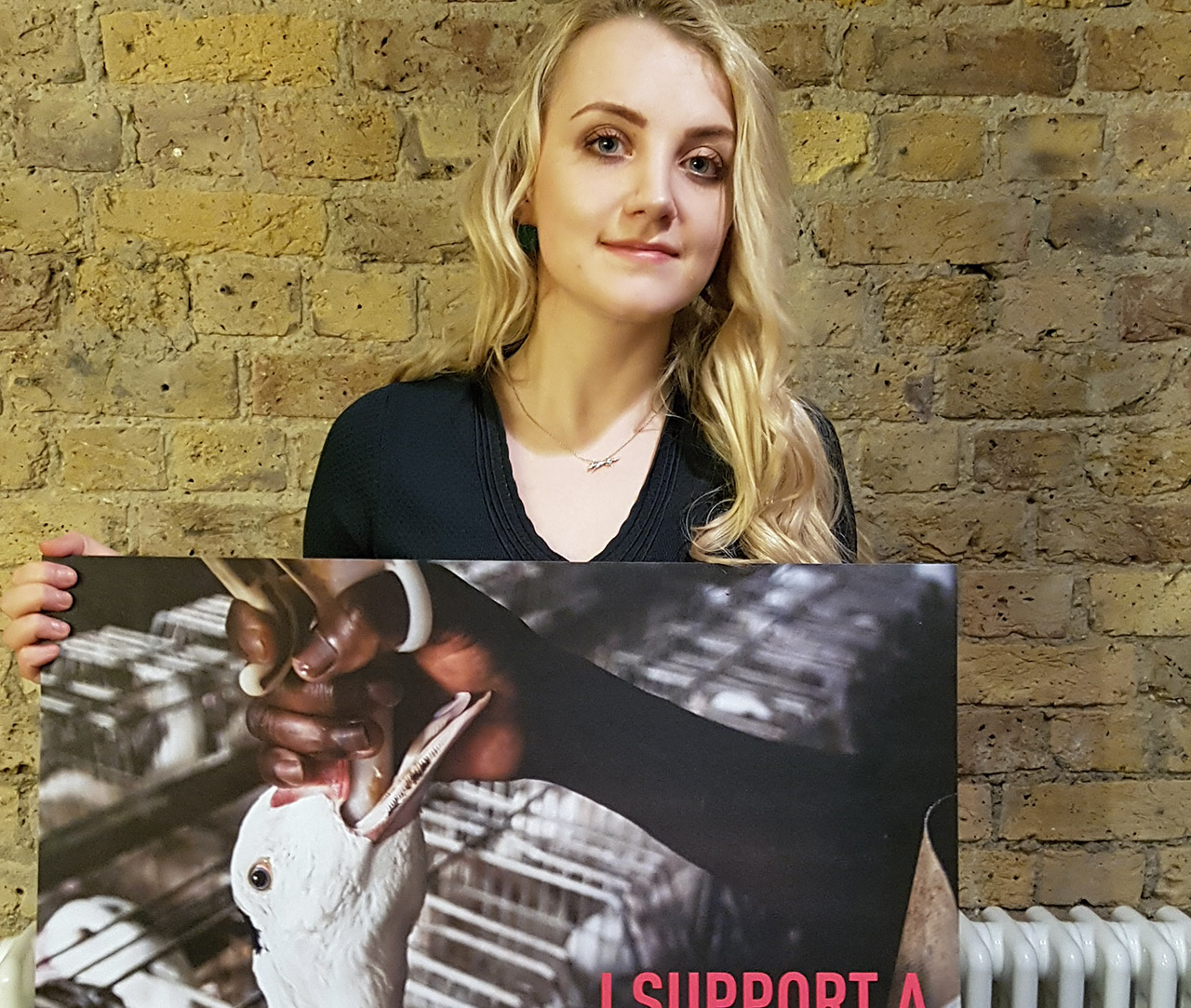
Update October 2017 – At a political conference in Brighton, lawmakers signed Animal Equality’s petition and posed with a #FoieGrasFreeGB sign. EastEnders stars Lindsey Coulson and Tanya Franks also joined the call.
Meanwhile, comedian and director Ricky Gervais encouraged his fans to sign Animal Equality’s petition, generating nearly 25,000 signatures in 72 hours.
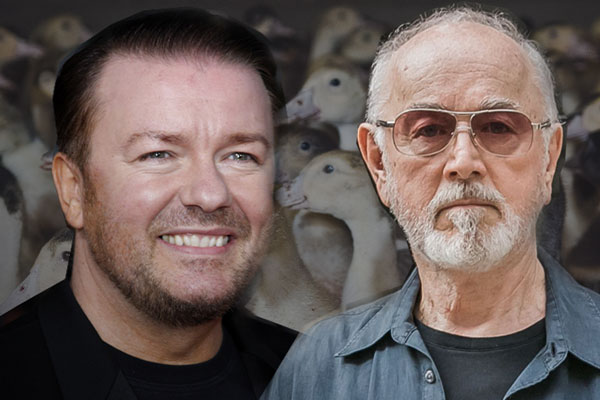
Update July 2017 – As Brexit negotiations begin, celebrities Joanna Lumley, Peter Egan, and Steven Berkoff have joined Animal Equality’s campaign. The initiative also has cross-party support from MPs (Members of Parliament).
We banned [foie gras] production in the UK because it’s cruel. Now let’s ban the importation of this cruel product. Make the UK foie gras free! -Peter Egan
Update June 2017 – As the United Kingdom prepares to leave the European Union—a process known as Brexit—Animal Equality is calling on lawmakers to ban foie gras imports immediately.
Brexit, which was decided by a public vote in 2016, gives the UK full control over its trade laws. This removes EU restrictions that previously prevented a ban.
Animal Equality UK has launched a petition under the hashtag #FoieGrasFreeGB, gaining support from celebrities, politicians, scientists, and animal protection experts.
What is foie gras?
Foie gras, French for “fatty liver,” is an alleged “luxury” food made by force-feeding ducks and geese until their livers swell with disease. Workers repeatedly shove metal tubes down the birds’ throats, pumping them with calorie-dense food for weeks before slaughter.
Animal Equality’s investigations into foie gras farms in Europe have uncovered birds with bloody wounds and broken beaks, crammed into wire cages and filthy pens. Many suffer from infections and organ failure, with some found dead in their cages or on the floors.
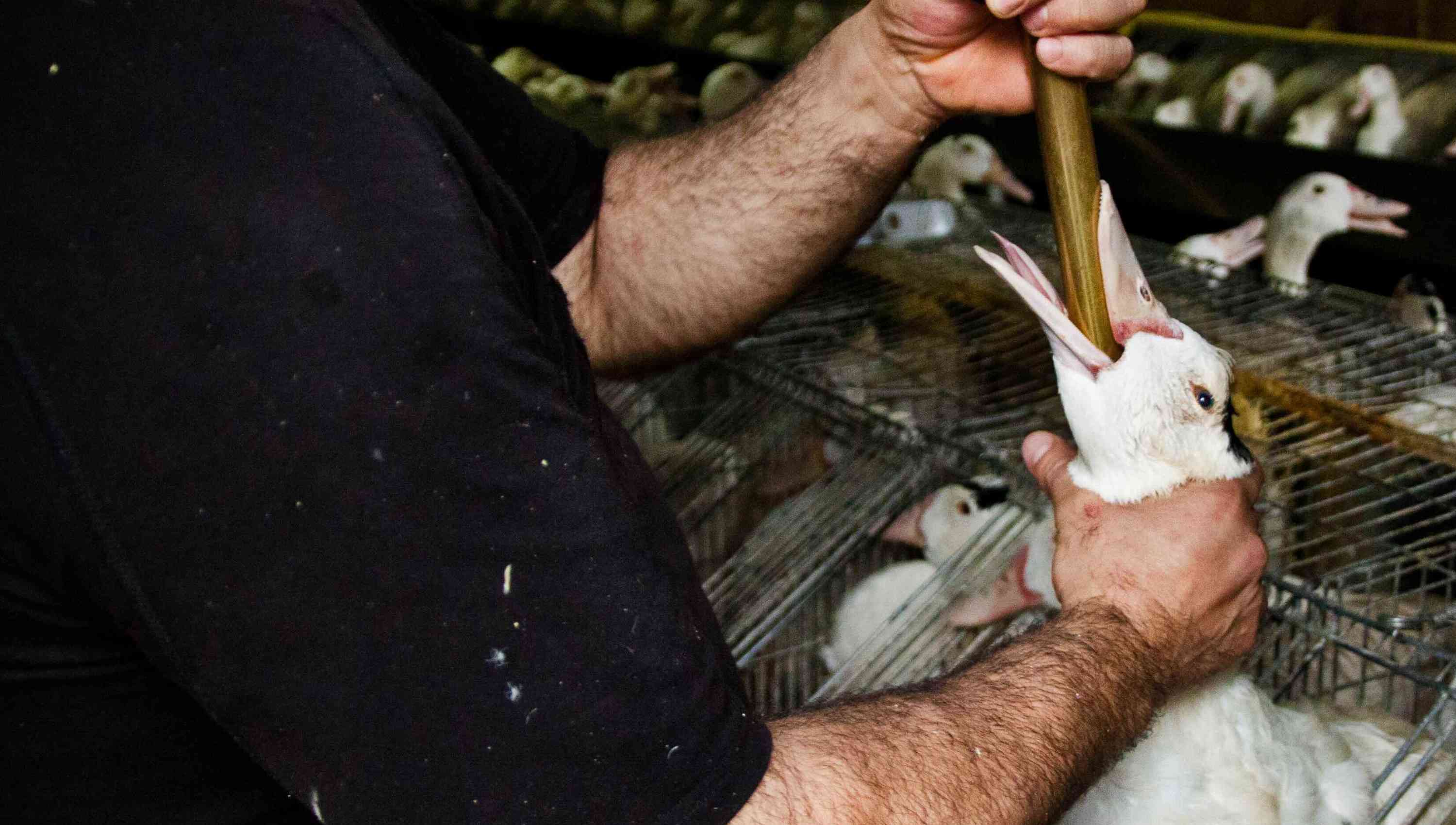
Is foie gras illegal in the UK?
Foie gras production is illegal in the UK due to its extreme cruelty. Force-feeding is banned under the Animal Welfare Act (2006) and farming regulations across England, Scotland, Wales, and Northern Ireland.
Despite this, the UK imports tons of foie gras from mainland Europe each year. High-end retailers like Harrods and Fortnum & Mason sell it, while luxury restaurants often serve it–despite fewer than 10% of Britons consuming it.
Banning foie gras imports could spare an estimated 250,000 birds from suffering annually.
What does foie gras have to do with Brexit?
Brexit will soon give the UK the power to set its own trade rules–including banning foie gras imports–which it would struggle to do under EU rules. Once it happens, the UK will be able to block products made in ways that violate its animal protection laws.
Foie gras in the U.S.: Growing calls for a ban
While foie gras is legal in most US states, citizens across the nation have expressed their concerns about animal cruelty.
California businesses can no longer produce or sell foie gras within its borders. Meanwhile, New York City passed a ban on foie gras sales in 2019. However, industry challenges have prevented it from going into effect.
Animal Equality is working alongside citizens in Portland, Oregon; Vancouver, Washington; and Ann Arbor, Michigan, to push for local bans. Thousands have already signed Animal Equality’s petition calling for a nationwide ban. Will you add your name today?
You can also take a stand against animal cruelty by replacing foie gras and other animal products with plant-based foods. Rediscover your love for food with the help of Love Veg, a free resource for everything plant-based.
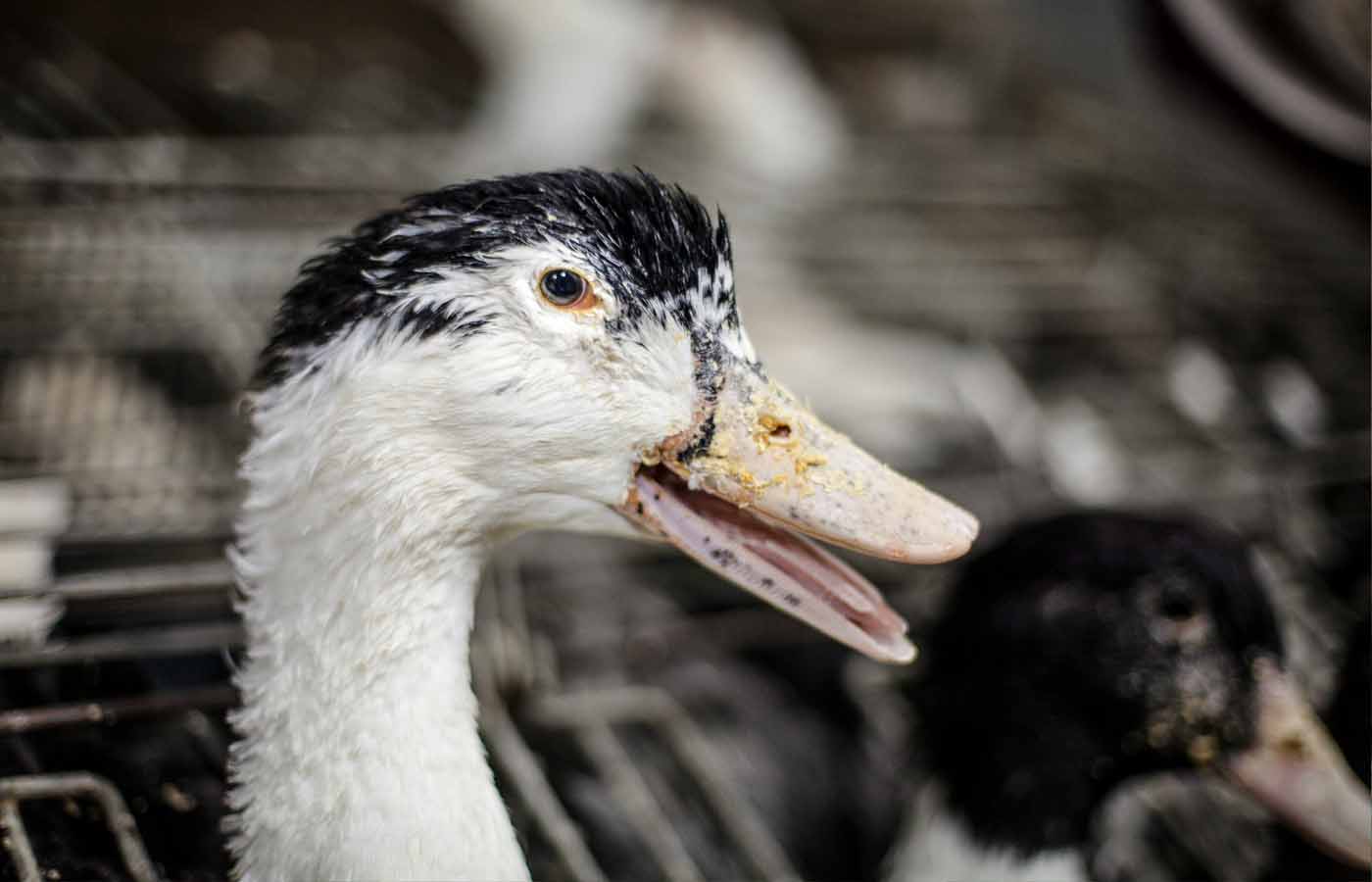
PROTECT DUCKS
Even before hatching from their eggs, ducklings communicate with their close‑knit families.
Protect these families by eating plant‑based and ditching animal products.

